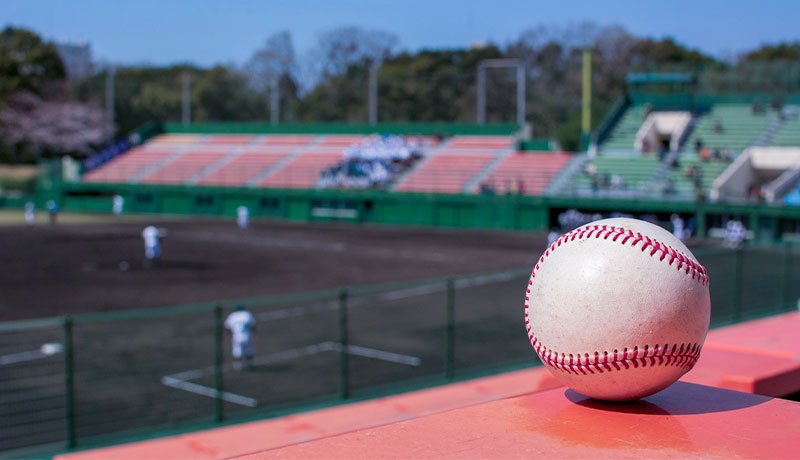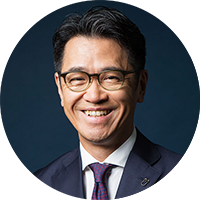Coach's VIEW is a business column authored by executive coaches in COACH A, aimed at providing valuable insights and effective approaches for leveraging coaching to foster organizational and leadership development. The column draws on the latest coaching trends and data, as well as insights from notable global publications on coaching.
Do You Value "Proactivity" or "Ownership"?

On July 19, 2024, the book "Creating a Happy Team" by Satoshi Yoshii, Manager of Chiba Lotte Marines, one of major professional baseball teams in Japan was released. The publisher, Discover 21, provided me with a copy in advance, saying, "Please give it a read," so I delved into it right away.
Upon reading, I suddenly felt that something became clear in my mind. Through Satoshi's definitions in the book, I felt as if my experiences from the past twenty years were suddenly organized. Reading it made everything in my mind become clear and organized, like sorting out a jumble of mahjong tiles into neat rows. Nothing is left undecided; everything has found its rightful place, neatly arranged in its designated spot.
"Ownership" vs. "Proactivity"
The clarity in my mind came from Satoshi Yoshii's definition of "Ownership" and "Proactivity". He says:
"I have always believed that there is a difference between 'Ownership' and 'Proactivity'. The meanings of each word are summarized as follows:
Ownership - the act of making decisions based on one's own will or judgment
Proactivity - the act of voluntarily taking on what needs to be done without being instructed by others or relying on others' help
In this way, ownership and proactivity have different meanings. While ownership involves one's own will and judgment, proactivity does not. In Japan's baseball community, including amateur players in school or corporate teams, many players simply follow advice and instructions without thinking them through. Or sometimes, they do so even if they do not agree with them. Optimistically, many actions were taken with rather active engagement and less reluctance. On the other hand, as far as I know, there are very few players with an 'ownership' mindset who seek for their own strengths and weaknesses and find ways to develop those without relying on instructions. It could be say that they are doing all under their own responsibility."(※1)
Satoshi cited Ichiro Suzuki, Sefat Farid Yu Darvish, and Shohei Ohtani as prime examples of professional baseball players with ownership. Satoshi's definitions of "Ownership" and "Proactivity" have brought clarity to my perception. His explanation had described what I experienced over the years of my journey in developing new coaches.
Becoming a Coach: Those Who Do and Those Who Don't
Over the past twenty years, many individuals have passed through our company's doors aiming to become professional coaches. We started hiring new graduates in 2016; before that, the position used to be opened only for mid-career professionals. For those transitioning to our company, it was more than just moving to a different workplace - it was a path to entering a "Dojo" called "COACH A" in order to become a professional coach.
*"Dojo" refers to a mastery-training hall for Japanese martial arts (such as a training mat in Judo)
Most people quit their previous jobs with determination and commitment to embark on the path to becoming professional coaches. However, there were those who could and could not become one. Those who could become professional coaches became capable of providing high-level coaching to senior executives and managers in large corporations, and then there were others who unfortunately gave up on the path to becoming a professional coach along the way. In my role of conducting final interviews, I only select individuals who exhibit the confidence and potential to become outstanding coaches. Nevertheless, there are still those who show progress and those who do not.
Satoshi continues from the previous statement:
"The significant difference between having ownership and proactivity are through motivation, which varies between 'making decisions for oneself' and 'doing things as instructed by others'. The focus and duration of concentration differ as well. When things go wrong, those who make decisions for themselves find it easier to recognize what went wrong. For athletes, actively making self-determined decisions is significantly beneficial in various ways."
In our company, we offer various training programs for people to become coaches. Some individuals swiftly complete these programs and move on to the next stage. At first glance, they may appear as "enthusiastic new employees with promising futures". However, focusing solely on their "swift action" may lead them to misjudgments. Using Satoshi's words, there is a possibility that "while they possess proactivity, they may not have ownership" in their approach.
Resolution to Foster Ownership
When Satoshi became the manager of Chiba Lotte Marines baseball team, he initially launched new "Basic Principles". He said,
"I want to encourage the players to exhibit ownership, to consider, make their own decisions, and take actions with their own wills and judgment. I will do everything I can to make this happen."
When I compared Satoshi's principles with my own actions, I question if I did enough to empower employees to take ownership. I might have been too comfortable when new employees exhibited proactivity, thinking that was enough. In Japan, there are expectations to demonstrate "Proactivity" as Satoshi describes, whether in school classes or club activities, which often translate into following a decision that has already been established without questioning them.
Upon entering the workforce, the situation remains the same. Even if a corporate president asks individuals to act with ownership" in many workplaces, there seems to be a stronger inclination towards valuing proactivity over ownership. Many superiors appreciate the proactivity of their team. It is too beneficial. However, it is also important to know that while the actions nurture leaders with proactive followership, the company may lose opportunities to nurture leaders who will become change agents that shape context and history.
In the latest 2024 edition of the engagement survey released by Gallup last month, Japan ranked at the bottom globally.(※2) This trend has persisted for several years, with Japan maintaining the lowest levels of engagement worldwide. The proportion of individuals who believe they can change society or their country is alarmingly low. Now, turning the focus back, how about you? And what about your subordinates? Does the speed of your actions stem from proactivity or ownership? Perhaps pausing to reflect could serve as the starting point.
【REFERENCE】
※1 "Creating a Happy Team" by Satoshi Yoshii (Author), Discover 21(Publisher) in 2024
※2 State of the Global Workplace --- The Voice of The World's Employees, GALLUP, 2024
*Regardless of profit, non-profit or intranet, secondary use such as copying, diversion, selling etc. is prohibited without permission.
Language: Japanese

